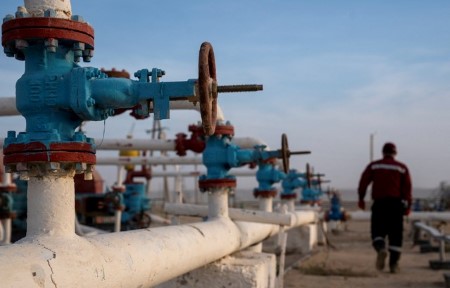




Policy Rate Updates: BSP outlook — cloudy with a chance of rate cut
 DOWNLOAD
DOWNLOAD

January Economic Update: Growth slows, prices rise
 DOWNLOAD
DOWNLOAD

Inflation Update: Up, up, and away?
 DOWNLOAD
DOWNLOAD


Oil settles slightly up as global supply risks offset US demand concerns

NEW YORK, June 27 – Oil prices settled slightly higher on Wednesday despite a surprise jump in U.S. gasoline supplies, as investors worried that a potential expansion of the Gaza war could disrupt crude supplies from the Middle East.
Brent crude futures rose 24 cents, or 0.3%, to settle at USD 85.25 per barrel. US West Texas Intermediate crude futures settled 7 cents higher at USD 80.90 a barrel.
Cross-border strains between Israel and Lebanon’s Hezbollah have been escalating in recent weeks, stoking fears of an all-out Israel-Hezbollah war that could draw in other regional powers, including major oil producer Iran.
“The geopolitical risk premium has been coming back to the market as a war between Israel and Lebanon is likely to see direct involvement of Iran, that would be a concern,” Andrew Lipow of Houston-based Lipow Oil Associates said.
Turkish President Tayyip Erdogan said his country stood in solidarity with Lebanon and called on regional countries’ support.
Houthi attacks on shipping in the Red Sea have supported oil prices. The group said it targeted a ship in Israel’s Haifa port with a number of drones in a joint military operation with the Islamic Resistance in Iraq.
Early in the session, oil prices fell after the US Energy Information Administration (EIA) reported a 3.6 million barrel jump in the country’s crude oil stocks last week, surprising analysts polled by Reuters who had expected a drawdown.
US stockpiles are rising while inventories elsewhere are declining, UBS analyst Giovanni Staunovo noted.
“I would call the oil market a tale of different stories,” Staunovo said. “We saw oil inventory draws in Japan and Europe last week. So it seems the market is tightening, just not yet in the US.”
UBS expects oil prices to rise in coming weeks.
Oil traders have worried about weak U.S. gasoline consumption during the country’s peak summer driving season.
US gasoline use represents around 10% of total world oil consumption, and gasoline demand in the country last week was down 3.6% from a year ago to around 8.9 million barrels a day. Stocks of the fuel rose unexpectedly even as refiners cut back output.
“These statistics are certainly going to disappoint the gasoline bulls,” Lipow said. “Absent a hurricane, we have adequate supplies for the summer driving season with July 4th right around the corner.”
Reporting by Shariq Khan in New York, Robert Harvey and Alex Lawler in London, Arunima Kumar in Bengaluru; Additional reporting by Emily Chow and Trixie Yap in Singapore; editing by Louise Heavens, Jason Neely, Sharon Singleton and David Gregorio
This article originally appeared on reuters.com





 By Reuters
By Reuters